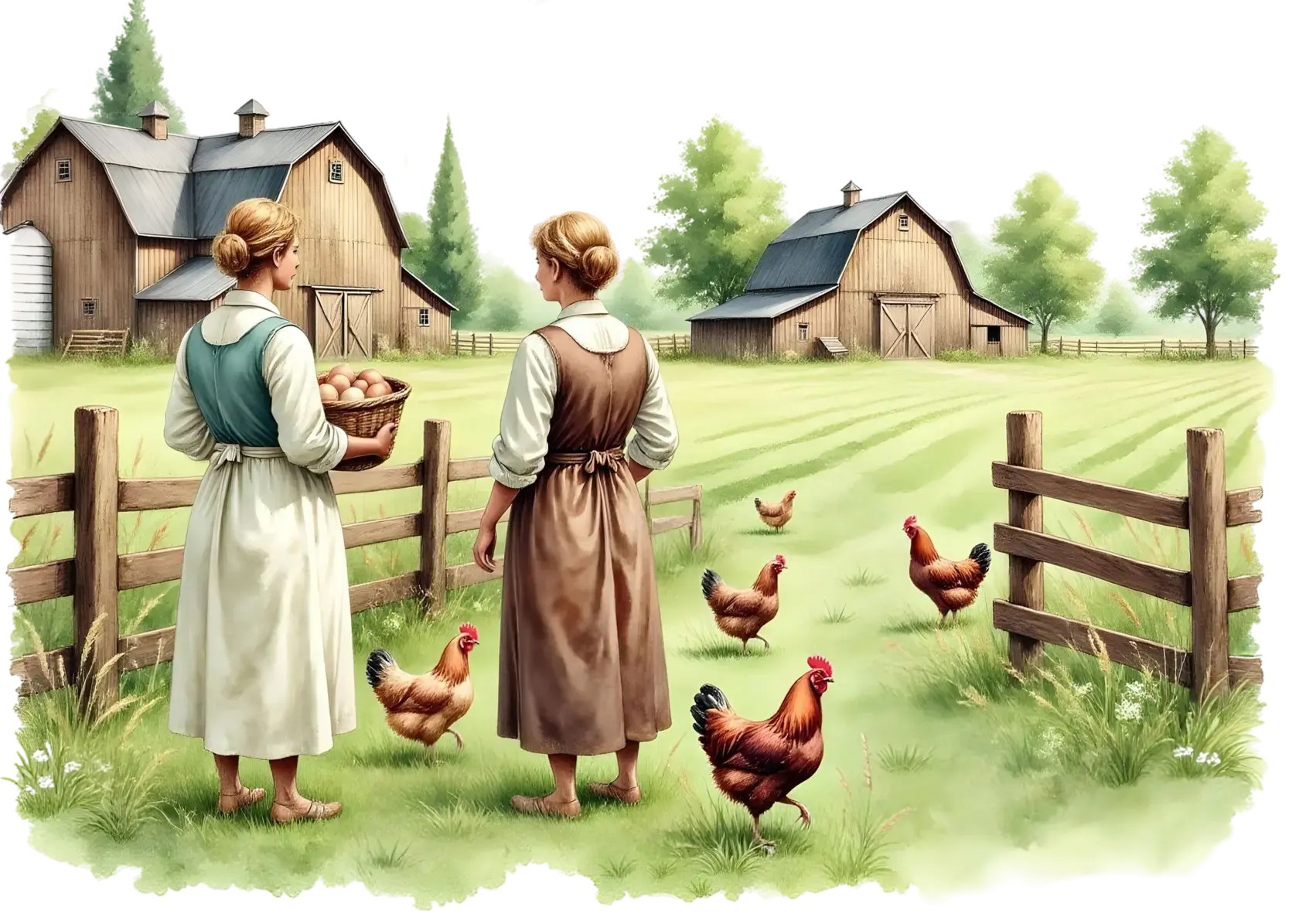Small team, big deal
This is Eduard — the brains behind the entire operation.
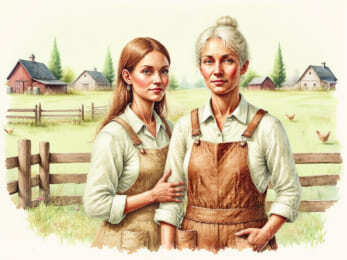
And these are Aina and Velga
He handles the financial side, sales management, taxes, logistics, and client communication. Thanks to his expertise, this venture came to life.
who taught us to see things more deeply and understand the connection between how we treat animals and the quality of their products.
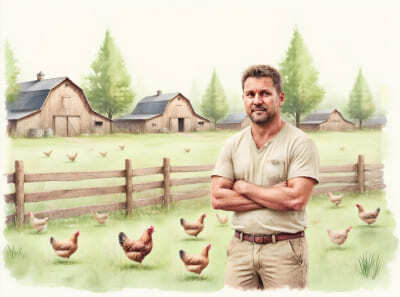
this story isn’t so much about eggs as it is about the world around us.
It started a few years ago. Living in nature and having our own farm, we had the privilege of choosing what to eat and surround ourselves with. We started raising different animals, including chickens, because eggs are one of those foods that can and should be eaten every day.
They contain an incredible amount of nutrients and I wanted to give my family the best of everything, including healthy egg breakfasts from the chickens raised on our farm.
They contain an incredible amount of nutrients and I wanted to give my family the best of everything, including healthy egg breakfasts from the chickens raised on our farm.
About the deep connection between man and nature, and about those who are able to feel this connection more acutely than others and pass it on to us

They told me that they are not only beautiful, but also contain more vitamins and useful substances. I got excited and decided to order some chickens at any cost. I didn’t want to take adult birds, because I dreamed of raising them myself, paying proper attention to their nutrition and habits. At the time of purchase, the salesman told me that these chickens require more care and lay many times fewer eggs than regular chickens.
We comforted ourselves with the thought that at least they were natural, but we still couldn’t handle the slight disappointment. Everything changed in an instant. Once I got to the exhibition of poultry farmers, where I learned about rare hens that lay eggs of unusual colours.
But there was still a feeling in our hearts that the eggs these hens were laying were not much different from the shop eggs
In the beginning, we took all the information on nutrition and rearing of chickens from the Internet, being sure that it was enough



He explained that they were quite picky about their diet and generally sensitive to living conditions. I didn’t pay much attention to what he said, as I already had a lot of experience with different animals, and I had about 60 chickens on my farm at that point. But almost from the moment of purchase things went wrong. Although the chickens lived in a separate coop and were fed the best grain, they became more lethargic and didn’t seem satisfied with life.
In desperation, I turned to my neighbours for advice. This is how I learnt about two women, Pasla and Velga, who lived nearby. According to the neighbours, they were called almost magicians in the village! They said that no one else understood animals as well as these two women.
I began to worry and studied more and moreмinformation, but I could not find an approach to them in any way

And causing stress is easier than you’d think — simply taking away the eggs she wants to hatch or separating her from her chicks can be enough. While a hen doesn’t need a rooster to lay eggs, his presence offers her a sense of security and emotional balance, which directly affects her overall well-being.
Before meeting them, we never really considered that for a bird to produce truly tasty and nutritious eggs, it takes more than just feeding it properly. It turns out, a hen needs a comfortable and safe environment, mental stimulation, and — what surprised us the most — emotional well-being and joy. When a hen is stressed, she may stop laying eggs altogether or do so only rarely.
Pasla and Velga revealed to us a simple yet profound truth: happy hens lay delicious eggs.
Their ancestors, once nomads, settled in Kurzeme and began breeding various animals. After decades of working in this field, they refined their farming principles, learned how to properly care for animals, and discovered what truly matters in this craft.
As Pasla and Velga told me themselves, in their families it has been believed since ancient times that everything in this world is interconnected, that animals and plants feel everything and can even take offence if you treat them badly. According to them, after years of living in nature, caring for and tending to animals, you begin to feel it yourself, and you can almost communicate with them and understand their language.
As it turns out, Pasla and Velga know all about animals firsthand.

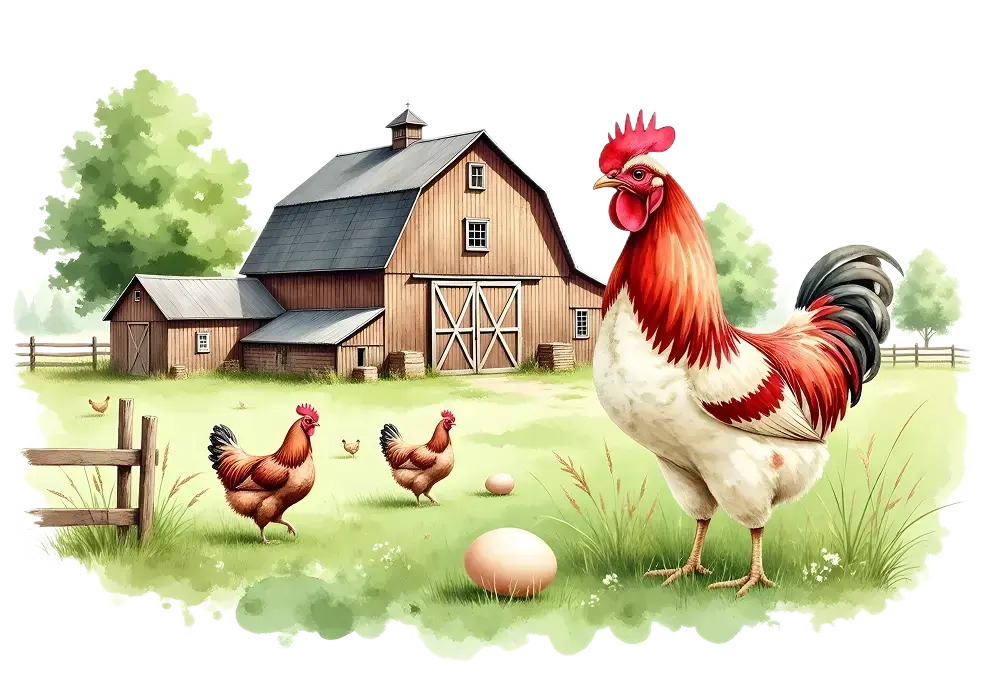
Behind their knowledge lies an entire philosophy that has been passed down in their families from generation to generation

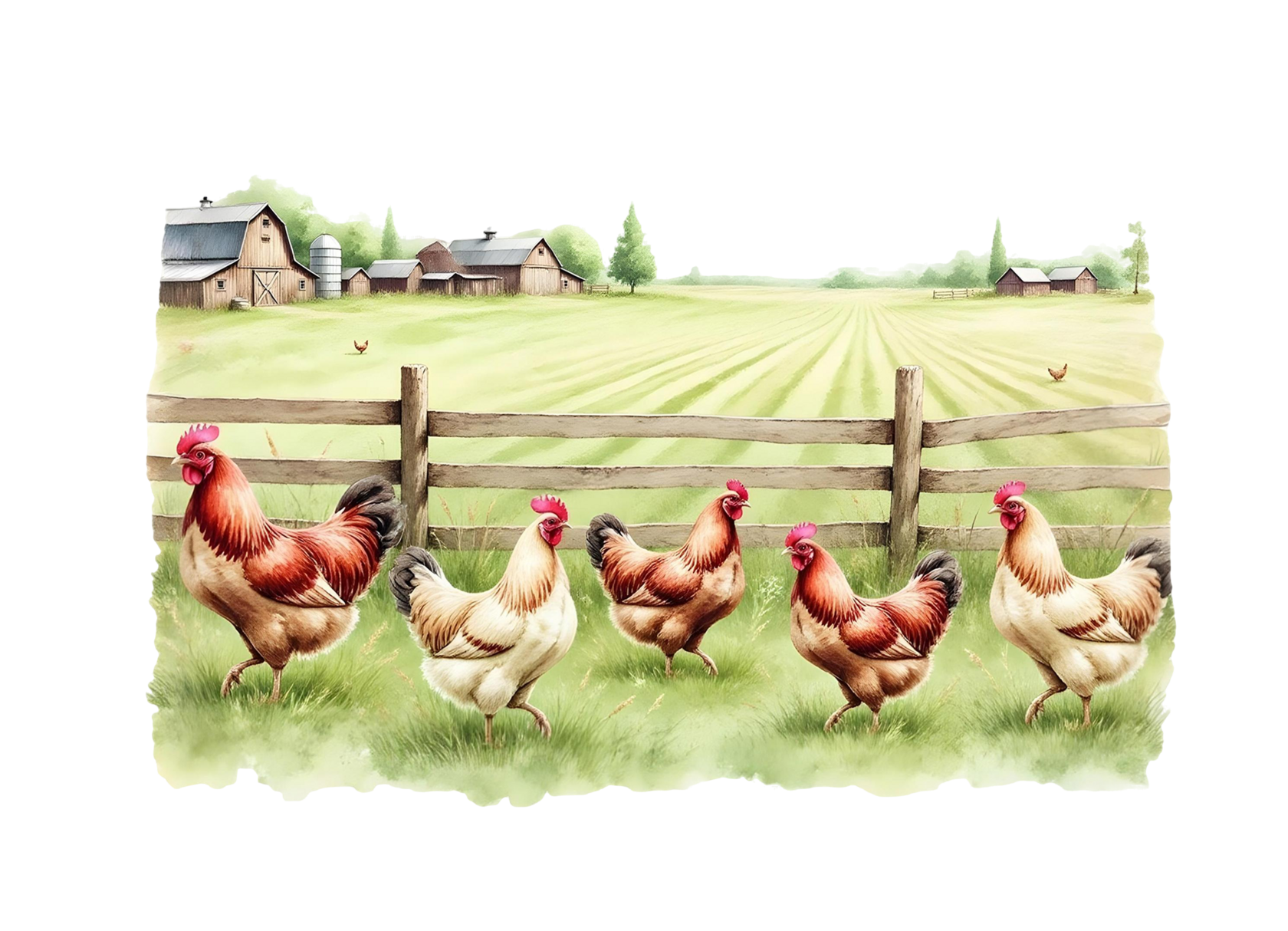
The base typically includes wheat, barley, and oats, but you can also add ground corn, oilcake, crushed eggshells, and even meat-and-bone mince. This nutrient-rich feed is especially important in winter, while in summer, hens get plenty of vitamins and minerals during free-range foraging.
But Pasla and Velga taught us how to feed hens properly and frequently, what kind of conditions they need to thrive in, and how to keep them mentally engaged. The women explained that hens require a varied and seasonal diet, with fruits and vegetables added depending on the time of year. The foundation of their nutrition shouldn’t just be grass and grain, but a special mix known as a "mash" — a hearty blend made from dry crushed and steamed grains, combined with cooked vegetables.
Up until then, we hadn’t paid much attention to such details. We gave them grain and sometimes let them out to peck at the grass.

Who would have thought that a hen’s mood and emotional state could be so crucial to the quality of her eggs?
Yes, it takes a lot of effort to care for such hens and monitor their well-being — but it’s so worth it.
Because of that, and thanks to the wisdom and care of Pasla and Velga, not only our family, but many others can now enjoy healthy, organic, eco-friendly eggs that bring back childhood memories — when everything was real, homemade, and full of flavor.
Because of that, and thanks to the wisdom and care of Pasla and Velga, not only our family, but many others can now enjoy healthy, organic, eco-friendly eggs that bring back childhood memories — when everything was real, homemade, and full of flavor.
And when, a few months later, one of the hens laid her first blue egg, our excitement was beyond words! After tasting it, I realized I had to share this knowledge — and this extraordinary product — with people not just in Latvia, but all across Europe. You should have seen the faces of my guests when I served them the first batch of colorful eggs and told the story behind their creation!
I immediately invited Pasla and Velga to join our farm team — and to my delight, they agreed. From that moment on, everything changed: the hens were given spacious coops, free-range access, and even regular classical music sessions. They listened to Mozart like true aristocrats (after I discovered that classical music reduces stress and boosts appetite in animals)
Thanks to Pasla and Velga, we had our eyes opened to an entire universe we never even knew existed.
After receiving such invaluable advice, I knew I could never go back to my old ways
Grown with care, to bring you joy for years to come

You can also purchase walnut seedlings that we cultivate ourselves, selecting specific varieties suited for the cold climates of Latvia and other European countries.
We’ll share methods and secrets for successfully growing walnut trees, as well as help you choose a tree that will bring joy to you and your family for decades.
WALNUT.LV
Unique types of roses for your garden
As well as walnuts, we also offer rose seedlings.
Our hybrid roses have beautiful feminine names and will adorn your garden with their stunning blooms.
Buying roses and walnuts from us creates the perfect combination: bright garden decorations and a useful harvest.










